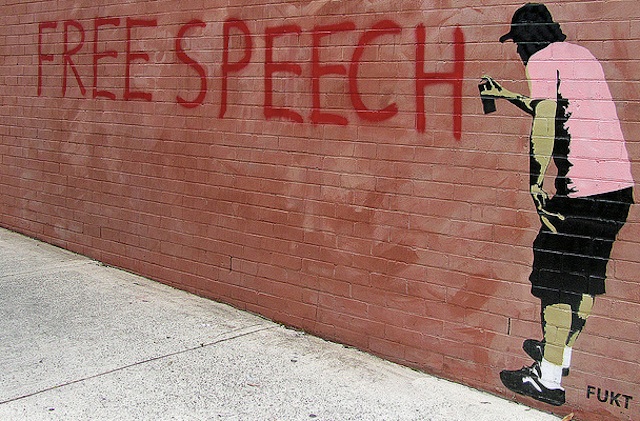There have been a lot of words written about the European Court of Justice ruling in May this year which forced Google to remove links to content when requested. Here are some I’ve written to expose how the issue is being handled in a simplistic way by most of the media.
The European Courts ruled that according to personal data protections search engines (Google & Bing) are “obliged to remove from the list of results displayed following a search made on the basis of a person’s name links to web pages” if they are “inadequate, irrelevant or excessive”.
Since the ruling, Google’s response has been swift. They have apparently received requests from 91,000 individuals covering 328,000 URLs and have been active with some nifty op-ed pieces in the European press with David Drummond, chief legal officer arguing that it is a complex issue which handled poorly could result in the restriction of free expression and somewhat alarmingly the abrogation of Article 19 of the UN Charter of Human Rights.
Drummond helpfully quotes it in his article:
“Everyone has the right to freedom of opinion and expression; this right includes freedom to hold opinions without interference and to seek, receive and impart information and ideas through any media and regardless of frontiers.”
The response from the media has been equally swift.
Business Insider reckon that because links to articles about a former CEO of Merrill Lynch were removed the ruling equates to “censoring the internet, giving new tools that help the rich and powerful (and ordinary folk) hide negative information about them, and letting criminals make their histories disappear.”
TechCrunch saw the problem as an example of the gulf between technology and law, with Natasha Lomas writing an intelligent article which pointed to Google’s market dominance and the importance of a nuanced comprehension of Google’s position as mass data-indexer and the gateway for the Internet for much of Europe.
Pando have been skeptical about Google’s complaints about censorship and the limitation of free expression with Nathaniel Mott writing that “Google has been using the press to control the debate around the right to be forgotten ruling since it was first announced.”
Danny Sullivan in Search Engine Land didn’t mince his words “You know what other place imposes censorship restrictions on search engines without clear guidelines? China.” and “Google has readily seized upon the role of censor, something that in other countries it has rejected with reluctance.”
Other commentators have argued that the ruling and Google’s apparent acqueiscence could be harmful to democracy if embarrassing articles about politicians are removed from easy discovery. In Australia, Institute of Public Affairs member, Simon Breheny equates the decision with censorship and warns that “It’s the ultimate in state outsourcing. Rather than judges and courts adjudicating what material gets taken down and what material stays up, it forces a private company to do the work of a proxy censor.”
And lastly, Jimmy Wales, the admired founder of Wikipedia weighed in early to the debate saying that a “deep injustice and terrible danger in European law” needed to be set right to protect free speech.
Equating asking Google to remove links from their index to censorship is a very scary prospect. Not because it’s true, but because it demonstrates the incredible power Google, a billion dollar business, have over how we discover and consume information. In technical terms it clearly isn’t censorship. Google index the Internet and using algorithms present that information back to users searching for someone or something. They link to other stuff individuals and businesses have published on the Internet.
On the face of it, removing an entry from the index isn’t censorship because the original content has not been removed and is presumably still discoverable by some other (less easy) means – twitter or Facebook? But Google is not just a humble search engine. Google are an advertising behemoth that makes billions of dollars from displaying relevant ads next to the content they have cleverly indexed and presented. Google is a gateway website for up to 90% of Internet users in Europe (and Australia) and the removal of information means that it most likely won’t be discovered. This makes Google a publisher with arguably more power than most traditional publishers which are busy trying to save their arses from being further disrupted. That’s what’s scary. Google are scary.
So does the ruling mean we’re on the cusp of a dark period of censorship with free speech provisions being limited by spurious privacy protections? No, it doesn’t. The Internet is by it’s nature distributed and even if information is removed from a search engine it remains discoverable by other, admittedly less-easy means. Privacy matters and the European courts have taken a bold albiet flawed step in protecting the ights of individuals against massive corporate entities intent on hoovering up all manner of personal information to monetise with little regard for the consequences. What the defenders of Google’s right of “free expression” forget is that Google is a business, not a warrior for free-speech, the truth, and the all-American way.
The real question is: Is my speech still free if search engines like Google monitor, measure, and monetise everything I say?
Ultimately I believe the European laws will be changed to better reflect current technologies and there will be a better balance between the rights of individuals, the discoverability of information, and unacceptable corporate surviellance. This issue is far too important to be reduced to fantasies about free expression, censorship, and power.

